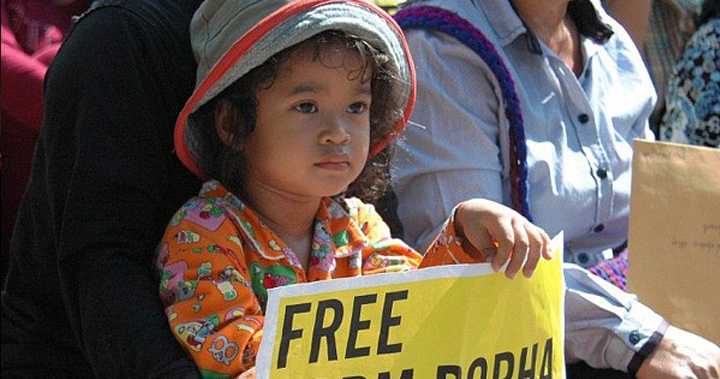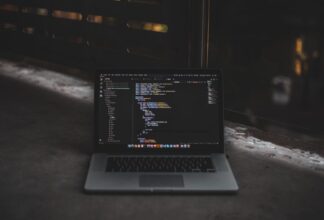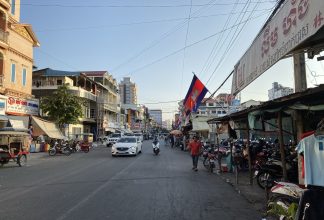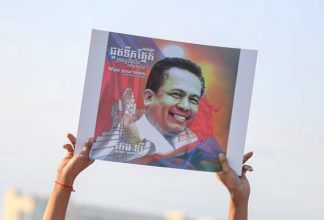Respect Freedom of Expression as Elections Approach

As Cambodia prepares to hold elections for its National Assembly on 28 July 2013, and following the return to the country of opposition leader Sam Rainsy on 19 July, four international human rights organisations – Amnesty International, Civil Rights Defenders, Freedom House and the International Federation for Human Rights (FIDH) – call on Cambodia’s government to respect and protect the rights to freedom of expression, peaceful assembly and association.
We call on leaders of all political parties to protect the space for everyone in Cambodia to peacefully express their opinions, whether majority or dissenting; and to signal clearly that committing, inciting, encouraging or condoning violence or other human rights abuses will not be tolerated in the run-up to, during and after the elections.
We also call on the international community, including Cambodia’s donors, to stand up for human rights and encourage respect for freedom of expression during and following the elections.
Context
The above-named organisations are concerned at the disturbing situation of freedom of expression and related rights that has preceded the elections – the fourth since those organized by the United Nations (UN) in May 1993.
Under international law, as well as the country’s Constitution, Cambodia’s government is obliged to respect, protect and promote the rights to freedom of expression, peaceful assembly and association at all times, including around elections.
Many of Cambodia’s donor countries have also committed to promote and encourage respect for these and other human rights, as signatories to the 1991 Paris Agreements.
But the Cambodian authorities are continuing to use restrictive laws to curtail freedom of expression and related rights, including unconstitutional provisions in the Criminal Code for example, and the Law on Peaceful Assembly, which is frequently misused.
Human rights defenders – including land and housing rights activists, those in grassroots groups and other civil society organisations, trade unionists, journalists and parliamentarians – continue to face harassment, intimidation, death threats and even killings, for their peaceful work promoting and protecting human rights.
Excessive force has been used against the growing number of people exercising their right to peaceful assembly throughout the country, particularly in the context of land and labour disputes.
And prosecution of human rights defenders and others peacefully challenging government policies and actions has reached new heights, with Cambodia’s courts being used to target them. The recent high profile case of housing rights activist Yorm Bopha is one example of this disturbing trend.
Yorm Bopha is a representative from Phnom Penh’s Boeung Kak Lake community, where thousands of families have been forcibly evicted since 2007 when the land was leased to a company for development. The Phnom Penh Municipal Court convicted her in December 2012 for “intentional violence with aggravating circumstances” after an unfair trial, and sentenced her to three years’ imprisonment. Despite the lack of evidence against her, the conviction was upheld on appeal in June 2013, although a year of her sentence was suspended.
The above-named organisations consider that Yorm Bopha has been imprisoned for her housing rights activism, exercising her right to freedom of expression, and playing a leading role in the successful campaign for the release of 13 fellow community representatives imprisoned in 2012 after a peaceful protest.
In contrast, the perpetrators of human rights violations and abuses – including against human rights defenders and others peacefully exercising their right to freedom of expression and related rights – are effectively granted impunity.
Born Samnang and Sok Sam Oeun have been imprisoned again, serving 20-year sentences for the killing in 2004 of trade union leader Chea Vichea, an outspoken advocate and campaigner for workers’ rights. The two men were wrongfully convicted in 2005 after a flawed criminal investigation and a grossly unfair trial, at which no credible evidence was presented to prove their guilt. After a campaign by human rights groups, Cambodia’s Supreme Court released the two men on bail in December 2008 and ordered a new investigation and retrial. But in December 2012, four years after their provisional release and following a brief hearing at which no new evidence was presented, the Appeals Court upheld their convictions and sent them back to prison. The real killers of Chea Vichea have never been brought to justice.
The above-named organisations call for the immediate and unconditional release of Yorm Bopha, Born Samnang and Sok Sam Oeun, before the elections on 28 July 2013, and for investigations into the killing of Chea Vichea to be reopened.
This would signal a timely commitment by the government to respect and protect the right to freedom of expression and related rights, and to end impunity for those who use violence to try to silence others.
Election period
As the elections approach, the above-named organisations welcome the reduction in violence against and killings of those affiliated with opposition parties, which during previous polls had a chilling effect on freedom of expression. So far, there have been no reports of such politically motivated killings in the run-up to this year’s elections.
We welcome the royal pardon on 12 July 2013 of Sam Rainsy, the leader of the Cambodia National Rescue Party (CNRP). He was convicted in absentia on a number of charges that appeared politically motivated, after he fled Cambodia in late 2009.
We echo the call of the UN Special Rapporteur on the situation of human rights in Cambodia, Surya Subedi, for the government to “take the necessary action in order to allow Sam Rainsy to play a full part in the national politics of Cambodia.” Sam Rainsy should be able to participate fully and freely in the upcoming elections.
We are concerned that last month, on 5 June 2013, the National Assembly’s permanent committee made up only of parliamentarians from the ruling Cambodian People’s Party (CPP), stripped all opposition lawmakers of their parliamentary status. Their parliamentary immunity was thereby lifted, making them more vulnerable to prosecution for the peaceful exercise of their right to freedom of expression in the course of their duties as the people’s elected representatives. This move also turned the legislature into a one-party body, without the minimum number of parliamentarians required under Cambodia’s Constitution.
Two days later, on 7 June, the National Assembly passed a new law that appears to criminalize the denial, diminishment or refusal to acknowledge crimes committed during the Khmer Rouge period. The law was proposed after the government released audio recordings of Kem Sokha, the deputy leader of the CNRP, apparently claiming that Viet Nam fabricated evidence of torture of Cambodians at a Khmer Rouge prison. This context does not bode well – the above-named organisations are concerned that this broad new law may be used to criminalize peaceful criticism of the government.
The above-named organisations welcome that activists from the main political parties have apparently so far been able to enjoy their rights to freedom of expression and peaceful assembly, and promote their parties and policies during mostly peaceful and public campaigning in Phnom Penh and throughout much of the country. Hundreds-of-thousands of people in Phnom Penh welcomed the return of Sam Rainsy on 19 July 2013, with the authorities respecting the rights to freedom of expression and assembly.
We are however concerned about reports of activists from the ruling CPP disrupting earlier CNRP rallies. Further, we are concerned at reports that local authorities in Ratanakiri province banned officials and residents from attending meetings held by non-governmental organisations, to ensure that they have been available to focus on the elections – there is some confusion as to whether the ban is still in place. The ban appears to have been supported by the National Election Committee (NEC) and runs contrary to ensuring that civil society actors and others can freely engage in meetings and discussions around the elections.
The above-named organisations are concerned also at reports that the government is seeking the arrest of individuals who have allegedly distributed interpretations of poll data that favours the CNRP. Nobody should face arrest for the peaceful exercise of his or her right to freedom of expression.
We welcome the important role that unrestricted online social media has apparently played in encouraging young adults in Phnom Penh and provincial centres to participate in the elections, discussing their ideas online and taking to the streets to peacefully exercise their right to freedom of expression and peaceful assembly in support of their favoured politicians and parties.
However, the reported NEC request for social media users to “not provide wrong information about the election” may have a chilling effect on users and has caused some concern, particularly in the context of concerns about a planned Cyber Law.
The above-named organisations are concerned also at the limited freedom of traditional media, including newspapers, radio and, in particular, television. During elections, the media plays an important role in disseminating, reporting and scrutinizing parties’ policies and messages. This allows voters to access information about the parties and the elections, and to make informed decisions. But most media in Cambodia are either controlled by the government or exercise self-censorship, generally providing only limited or unfavorable coverage about opposition parties. This makes access to more independent, foreign media essential.
On 27 June 2013, the government announced a ban on radio broadcasts from foreign media during the election campaign. The ban dealt a direct blow to the very few independent or alternative radio stations that rebroadcast Khmer language news from foreign news organisations. We welcome the government’s quick decision on 29 June 2013 to reverse the ban, and encourage more balanced media coverage of the elections by the media
Other organisations have highlighted very serious concerns around voter registration and additional election-related irregularities, but these are beyond the scope of this statement.
Looking ahead
The above-named organisations reiterate our call for the immediate and unconditional release of Yorm Bopha, Born Samnang and Sok Sam Oeun.
We call on the next government to respect, protect and promote the rights to freedom of expression, peaceful assembly and association, addressing some of the serious concerns outlined herein, including the implementation of long-needed reforms to the justice system.
Awareness of human rights and expectations around the authorities’ obligations in this regard are growing ever stronger, as evidenced for example by the increase in protests over recent years and by the campaigning around this year’s elections. We call on the next government to ensure that all persons in Cambodia are able to peacefully enjoy and exercise their human rights and contribute to the development of their country.
And we call on the international community, including the signatories to the Paris Agreements, to be vigilant in speaking out against human rights violations and abuses in Cambodia, demanding that perpetrators are held accountable, and supporting publicly those individuals and communities who are calling for greater respect for their human rights.
Signatories
Amnesty International
Civil Rights Defenders
Freedom House
International Federation for Human Rights (FIDH)
Appendix – Legal obligations
The rights to freedom of expression, peaceful assembly and association are protected in articles 19, 21 and 22 respectively of the International Covenant on Civil and Political Rights (ICCPR), to which Cambodia is a State party; and in articles 41, 37 and 42 respectively of Cambodia’s Constitution.
These rights are important in the context of elections. In its authoritative General Comment on Article 25 of the ICCPR – which protects the right of every citizen to “take part in the conduct of public affairs, directly or through freely chosen representatives”, and to “vote and to be elected at genuine periodic elections …” – the Human Rights Committee, the UN expert body that oversees the implementation of the ICCPR, has noted:
“… [F]ull enjoyment of rights protected by article 25 … requires the full enjoyment and respect for the rights guaranteed in articles 19, 21 and 22 of the Covenant, including freedom to engage in political activity individually or through political parties and other organisations, freedom to debate public affairs, to hold peaceful demonstrations and meetings, to criticize and oppose, to publish political material, to campaign for election and to advertise political ideas.”
The importance of these and other human rights in the context of elections is also recognized in Cambodian law. Article 73 of the Law on Election of Members of the National Assembly provides:
“During the election campaign period and on the polling day, all political parties and all candidates, all members and all supporters of political parties … shall respect the principles of human rights and democracy described in the Constitution of the Kingdom of Cambodia.”
There should be no restrictions on the right of freedom of expression unless they are provided by law, for the purpose of protecting certain public interests (national security, public order, public health or morals) or the rights of others; and, in each case, are demonstrably necessary and proportionate for the achievement of that purpose (Article 19(3) ICCPR). Similar restrictions are permitted with respect to freedom of peaceful assembly and association, in articles 21 and 22 respectively of the ICCPR. In no circumstances should the restrictions be applied or invoked in a manner that would impair the essence of the right itself.
Additionally, Cambodia and many of its current international donors committed in 1991 to promote and encourage respect for human rights in Cambodia as Signatories to the Agreements on a Comprehensive Political Settlement of the Cambodia Conflict (the Paris Agreements) after years of civil war in the country. The international signatories include all permanent members of the UN Security Council; all current members of the Association of Southeast Asian Nations (ASEAN) except Myanmar; as well as Australia, Canada, India and Japan.
Expressly providing that “[a]ll persons in Cambodia … shall enjoy the rights and freedoms embodied in the Universal Declaration of Human Rights and other relevant international human rights instruments”, the Paris Agreements provided that Cambodia will “ensure respect for and observance of human rights and fundamental freedoms in Cambodia”, and that “the other Signatories to this Agreement undertake to promote and encourage respect for and observance of human rights and fundamental freedoms in Cambodia …”.


